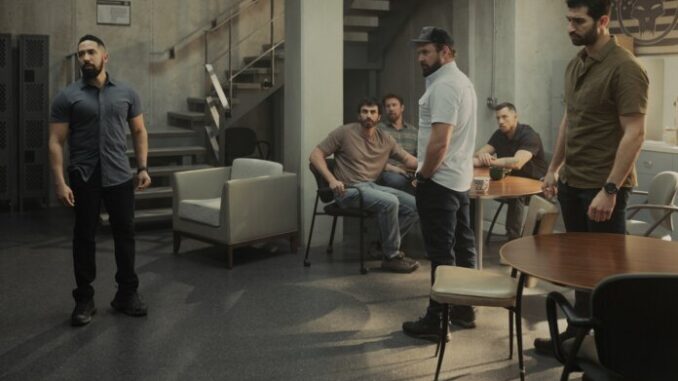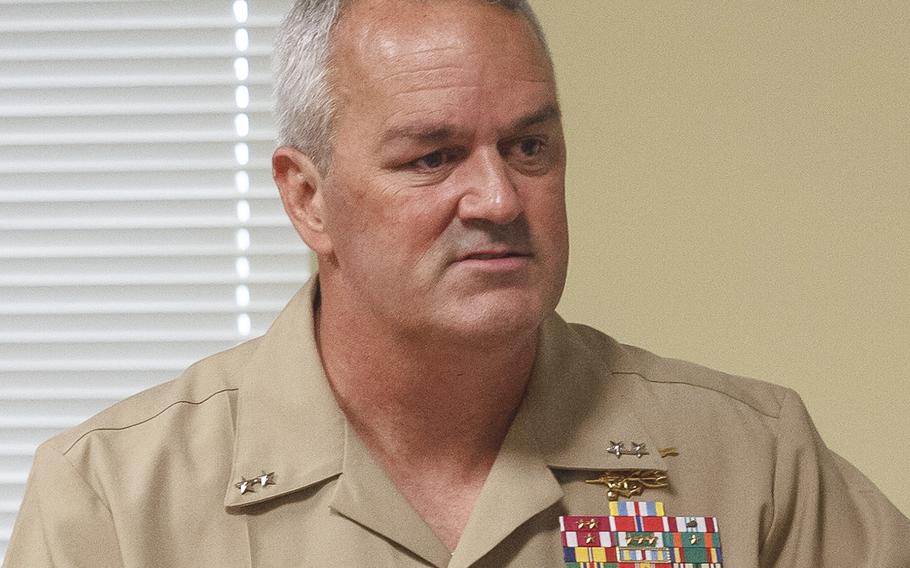
SEAL Team 7 Commanders Fired as Navy Seeks to Change Commando Culture
WASHINGTON — The Navy’s top SEAL fired three top SEAL Team 7 commanders Friday as the service grapples with a culture and ethics crisis within its elite commando ranks, Navy officials said.
According to a Navy statement, Senior Master Sergeant Collin Green, head of Naval Special Warfare Command, fired Commander Edward Mason, the team’s commander; Lt. Col. Luke Im, the executive officer; and Chief Petty Officer Hugh Spangler, the unit’s top commander, over leadership issues within the team’s ranks. The move comes after at least one of the California-based SEAL Team 7 platoons was sent home early from Iraq in July amid allegations of serious misconduct, including alcohol abuse near a shooting range and an alleged assault during an unofficial Independence Day celebration within the unit.

Green fired the SEAL commanders “due to a loss of confidence resulting from leadership failures that caused a breakdown in good order and discipline in two subordinate units while deployed to combat zones,” a Navy statement said.
A Navy official declined to provide further details about Green’s decision, but said the SEALs do not face additional disciplinary action and will remain in the Navy. They declined to say where the SEALs will be deployed or provide their service records.
The admiral’s decision comes after he ordered a major cultural change for the Navy’s special operations community late last month following a brief investigation into possible causes of misconduct among SEALs that has made headlines in recent years. In addition to significant problems within SEAL Team 7 in Iraq this year, SEALs from other units have faced a series of other troubling allegations in recent years, including war crimes such as killing unarmed captured enemy combatants, killing a Green Beret in Africa, and illegal drug use.
In an effort to rein in his force, Green last month ordered the SEALs to return to Navy uniform and appearance standards, including regular inspections. SEALs often sport beards, long hair, and non-standard uniforms, especially during the wars in Iraq and Afghanistan. Green also ordered a program to “track and develop an individual’s leadership and moral development” throughout their career, incorporate special warfare history and legacy into routine operations, and have the service provide all SEALs with formal legal briefings.
Green wrote in a memo announcing his decision last month that leadership failures throughout the SEAL organization were to blame for the ethical and cultural problems.
“The root of our problem begins with members who fail to correct this behavior within their leadership and prioritize this inconsistency over loyalty to the Navy and the nation,” Green wrote.
“We must take a ‘back to basics’ leadership approach to correct our drift,” he added. “I will hold the chain of command accountable, as I am responsible for good order and discipline in our formations.”
The firing of three senior SEAL team commanders appears to be an unprecedented move. The Navy reporter and another Navy official said Friday that they were unaware of a similar action in the history of the SEALs.
In his memo last month, Green wrote that his efforts to improve the SEALs were aimed at ensuring the public had confidence that his commandos could fulfill their mission of protecting the nation.
“In our business, trust is built by demonstrating competence and character,” Green wrote in the memo. “I charge all of you to perform at the highest level and hold yourselves accountable with unwavering competence and character — at all times, at all times. This mission is too important. The nation needs us to counter violent terrorist organizations, rogue regimes, and compete constantly with peer and near-peer rivals.”